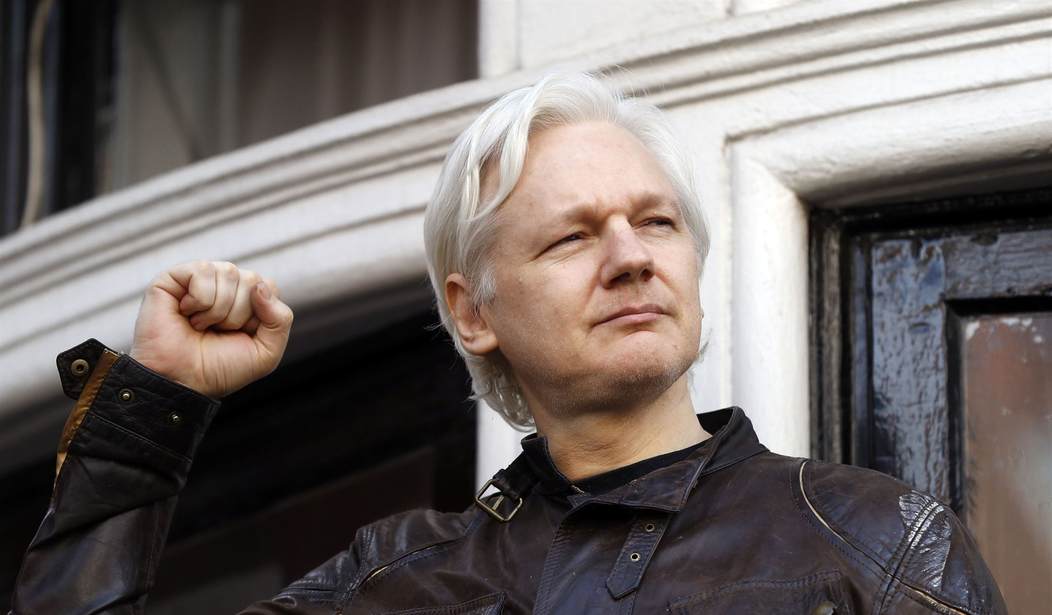Last week, WikiLeaks founder Julian Assange was dragged from the Ecuadorean embassy in London by a phalanx of British police officers; abruptly ending his nearly seven years of self-imposed political asylum in those cramped quarters. Far from ending the saga that began almost a decade ago when WikiLeaks published the trove of classified materials pilfered from the U.S. government by convicted spy Chelsea (formerly, Bradley) Manning, last week’s drama raises a slew of new questions about Washington’s sudden, high-level interest in this 48-year old Australian entrepreneur, computer programmer, and publisher.
Extradition proceedings in the U.K. will launch what is certain to be a lengthy and complex legal battle that ultimately will determine if Assange will be prosecuted by the U.S. Department of Justice; or even if he can be prosecuted by our government. Where this will end up – and who will be the winners -- is far from certain.
The Justice Department last week unsealed a year-old indictment charging that Assange conspired with Manning in 2010 to break into Defense Department computers. According to this remarkably short (six-page) indictment, Manning then was able to download and copy hundreds of thousands of classified documents, mostly having to do with military actions in Iraq and Afghanistan; and many of which WikiLeaks published on its website over the course of the next year.
Interestingly, Assange is not charged with any substantive offense; only with conspiring to help Manning in the acts that eventually saw her convicted of espionage by a court martial.
Assange is sure to defend against federal prosecution based on the claim that -- since he published the materials received from Manning in his capacity as director of WikiLeaks -- he is shielded from prosecution by the First Amendment. Whether that claim works for Assange is far from certain; but equally uncertain is whether judges in the U.K. and the U.S. will agree that helping someone gain unauthorized access to documents in order to then publish them in the “public interest,” is sufficient basis on which to pierce what in the United States has long-been a robust barrier protecting journalists and other whistle-blowers from prosecution.
Recommended
These concerns tee up the real question at hand, which is, what precisely is Uncle Sam’s interest in Julian Assange? Does the United States actually consider him to be a real and continuing threat to our country? If so, why did not the Justice Department craft a more substantive indictment? After all, they had plenty of time to do so.
Is the Trump administration truly interested in punishing Assange for WikiLeaks’ role in the Manning case or is the goal to further punish Manning, whose prison term was commuted by Barack Obama shortly before he left office? Is perhaps the real goal here to pressure Assange into disclosing more than already has been revealed publicly about Russia’s meddling in the 2016 election?
Regardless of the true motivation for the government’s apparently precipitous move against Assange, a stronger case should have been laid out in the indictment, which already is subject to credible procedural attacks by the Assange legal team.
For starters, prosecutors apparently are not certain Assange actually provided Manning the help she allegedly needed to access government databases. Even assuming this to have been the case, why did the government fail to prepare and file an indictment so alleging, before the statute of limitations appears to have expired, as former Assistant U.S. Attorney Andrew McCarthy wrote in the National Review. McCarthy suggests the government may try to avoid this obvious defense, by claiming an exception for “acts of terrorism transcending national boundaries”; but as McCarthy notes, such a strategy by the government “is not going to be a lay-up, to say the least.”
Currently, it is unclear exactly where in the administration the pressure originated to have Assange arrested and held by the British government pending extradition to the U.S. Regardless of whether the person or persons who pushed the “Go” button are at the State Department, the Defense Department, the Justice Department, or nestled in the White House itself, a real Pandora’s Box of legal and policy issues has been unleashed; the consequences of which may not be so comfortable as intended.
At a minimum, and as declared by Alice as she began her adventure in Wonderland, things most definitely will become “curiouser and curiouser.”

























Join the conversation as a VIP Member